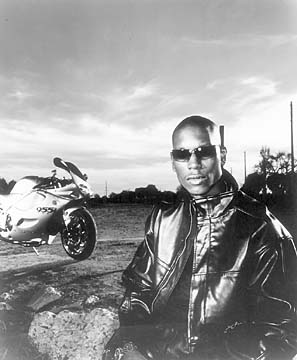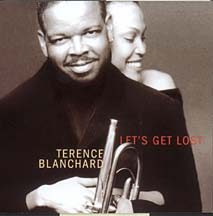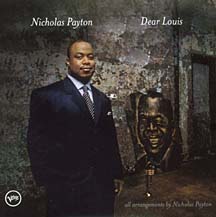

[ MAUKA MAKAI ]

According to his press release, Tyrese Gibson is the "smooth domed, chocolate Don Juan of R&B." Well, there's no denying the man's sexiness -- his photogenic looks help sell a serviceable singing voice, but, to be honest, he ain't no D'Angelo. R&B star lays down
a sexy grooveLISTEN UP
New Releases And Top Sellers"2000 Watts"
Tyrese (RCA)
Review by Gary C.W. Chun
gchun@starbulletin.comBut it doesn't really matter, because he's still got the total package. Thanks to a career-making appearance in a Coca-Cola commercial, Tyrese is living large, with success following all aspects of his career. "2000 Watts" follows up his popular debut CD and serves as precursor to his debut starring role in John Singleton's upcoming movie "Baby Boy."
A couple of tracks will undoubtedly be heard on the movie soundtrack. The ballad "I'm Sorry" shows Tyrese attempting to be convincingly repentant to his special lady (although his performance on the Stevie Wonder-ish "For Always" is better) and "Just A Baby Boy" features a guest rap from his co-star, Snoop Dogg.
That latter song ends a trio of bouncin' jams that offer a strong lead-in to the CD. The album's first single, "I Like Them Girls" (and the feeling is obviously mutual), and the Rodney Jerkins-produced track "I Ain't the One" both play off Tyrese's vocal strengths as a ghetto lover man, which is also in full effect on the light and friendly "What Am I Gonna Do."
Tyrese is smart to surround himself with solid production help such as Jerkins. Babyface helps out on the slow jam "There for Me (Baby)," Jermaine Dupri wraps an Ice Cube sample around Tyrese's freak-ready mode on "Off the Heezy" and guest female rapper Solé lends her skills on "Get Up On It," a showcase for C. "Tricky" Stewart's adept blend of strings and chittering beats.
"2000 Watts" is also an enhanced CD, meaning you can download a bonus track, "Lil' Mommy," and look at Tyrese's video diary, which includes a brief tour of his back-in-the-day-'hood of Watts (the CD's title is also the name of the foundation that he started to help build a community center there). The diary is an effective portrayal of an earnest 22-year-old wanting to do better with his life.
SONY
Terence Blanchard's latest is a collection of small pleasures.

They are two fine jazz trumpeters both born and raised in New Orleans -- and neither of them is Wynton Marsalis -- although I'm sure Nicholas Payton and Terence Blanchard can thank Marsalis for forging the career path they are both following. The ambitious tales
of two horn menLISTEN UP
New Releases And Top Sellers"Dear Louis"
Nicholas Payton (Verve)
"Let's Get Lost"
Terence Blanchard (Sony Classical)
Review by Gary C.W. Chun
gchun@starbulletin.comBoth men are reaping the benefits of how to present themselves and their music from Marsalis' polished example. The difference is that Payton's only 27 years of age, while Blanchard is 39. Payton's relative youthfulness is apparent on his latest album, a high-concept project that occasionally succeeds in channeling Louis Armstrong's musical essence into a contemporary sensibility. And credit Blanchard's woodshedding years with Art Blakey's Jazz Messengers and his superb film score work for his turning out a thematically sounder album that features the songs of Jimmy McHugh, one of America's greatest songwriters.
Not surprisingly, both albums share renditions of a McHugh standard, "On the Sunny Side of the Street," and a guest vocalist in Dianne Reeves.
Reeves sings the song on Payton's album, a small-group rendition with an unusual '70s fusion sound. She vocalizes more than sings the optimistic lyrics -- overall, an interesting concept that doesn't quite work.

The same can be said for two of Payton's big band arrangements: The modernist take of his "Potato Head Blues" sterilizes the original's rugged spirit, and a radical reworking of "Hello Dolly" is made near unrecognizable harmonically.Reeves is put to better use on her duet with Dr. John, a straight-up and delightful "Blues in the Night." And her singing on Blanchard's album helps give McHugh's music its proper due; her collaborative work on "I Can't Believe That You're in Love With Me" is filled with warmth and a kind of quiet joy.
Payton's own attempt at singing is a hit-or-miss affair; his serviceable vocal almost derails the gospel/Nawlins street-band spirit on "I'll Be Glad When You're Dead, You Rascal You" but fares a bit better on "I'll Never Be the Same."
Better he should stick to the horn. When he does, particularly with his solos on an Afro-Cuban take on "The Peanut Vendor," the good-humored "Tiger Rag" and the classic "West End Blues," he is at the top of his game. And Payton's sincere and rhapsodic tribute to Pops on the title track brings it all back home.
Blanchard does not overreach like Payton does on his album. "Let's Get Lost" is an album of small pleasures that add up to an emotionally fulfilling whole. Besides Dianne Reeves, his other guest singers bring a welcome female sensibility to the album. Diana Krall reins it in a bit, adding a bit of tension on the title track, and rising star Jane Monheit gives a good account of her vocal talents with a sympatico reading of "Too Young to Go Steady" and an ambitious "I Can't Give You Anything but Love."
The real standout, however, is Cassandra Wilson. Her sultry and soulful reading of "Sunny Side" (a song Blanchard would've kept off the album had Wilson not insisted on singing it) features a well-developed solo by Blanchard, who starts off with a lazy, slurring sound that approximates Wilson's singing, before taking up a brighter pace.
"Don't Blame Me" show the two at their best. There's an ebb and flow of emotion as Wilson first underplays the tension of the first verse, opens it up on the bridge and brings it back down again. Blanchard snakily negotiates the turns in his playing by occasionally smearing the notes.
Give Nicholas Payton a couple of more years of seasoning. In the meantime, Terence Blanchard's the man, and "Let's Get Lost" is a great mood-setter of an album.
Click for online
calendars and events.